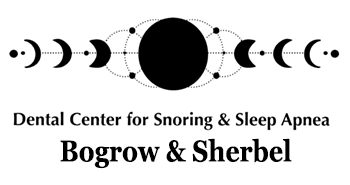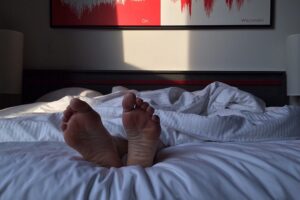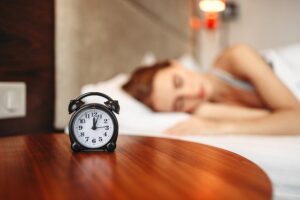Waking up Tired? You May Have Sleep Apnea

If you roll out of bed each morning tired, no matter how much sleep you got the night prior, it’s a problem worth investigating. Waking up tired is one of the biggest signs of sleep apnea, a condition that one in 15 people live with. The problem with sleep apnea is that it goes undiagnosed 80% of the time. You can’t tell if you have it while you’re asleep… because you’re asleep! The only way to know if you have it is to pay attention to the signs—like waking up tired.
If you believe you might have sleep apnea, the best thing you can do is visit a Michigan sleep apnea center, like Bogrow and Associates. Dr. Bogrow is deeply familiar with not only the signs of sleep apnea, but its causes and the proper way to remediate them. The first step toward getting a good night’s sleep and waking up rested is to address sleep apnea at its roots. Here’s what you need to know.
Start with a sleep assessment
First off, make sure sleep apnea is what’s ailing you. You will need to contact your physician, who can refer you for a Sleep Study. Not all patients who exhibit signs of sleep apnea actually have the disorder. Completing a Sleep Study will the physician the information she or he needs to give an accurate read on your symptoms and to suggest further action if you do, in fact, suffer from sleep apnea.
You can also complete a brief sleep assessment questionnaire on our website by clicking here. It will not be a substitute for you’re the Sleep Study, but it will provide some information that we can discuss. The assessment is easy to fill out and take only a few minutes of your time. The assessment will ask you simple questions about your medical history, such as whether or not you’ve experienced congestive heart failure, high blood pressure, irregular heart rhythms or a stroke. Additional questions ask about your symptoms and genetic factors that might predispose you for sleep apnea.
Consult with a sleep apnea specialist
After completing a sleep assessment, discuss the results with your local sleep apnea specialist. Not only will they discuss your options for non-surgical treatment, a specialist will determine which treatment option is the safest and most effective for you. Consulting with a professional also ensures that you’re not left wondering about the efficacy of a particular treatment; professionals will only recommend FDA-approved treatments.
Explore non-surgical options
Surgery isn’t always the solution. Sleep apnea is easy to treat without surgery, and you have many different treatment options to choose from. The following minimally invasive therapies are clinically proven to reduce or fully eliminate instances of sleep apnea:
- CPAP machine. CPAP stands for continuous positive airway pressure. These machines are the most common treatment option for moderate to severe sleep apnea. A mask fits snugly over the patient’s nose, and a flexible tube delivers continuous or intermittent pressurized air into the throat. The apparatus is worn at night to prevent upper airways from collapsing.
- Oral appliances. As the name suggests, people with sleep apnea wear oral appliances in their mouths when they go to bed. The equipment pushes the lower jaw slightly forward in order to prevent the tongue from obstructing airflow. People with mild to moderate sleep apnea prefer oral appliances because they’re comfortable, portable and easy to use. Remember that oral appliances aren’t one size fits all—you’ll need to visit your dentist and get fitted for a custom piece.
- Lifestyle change. Preliminary research has shown that patients who abstain from alcohol consumption right before bed report fewer instances of sleep apnea. Although more studies are needed, anecdotal evidence has also found that weight loss significantly reduces sleep apnea symptoms in patients who are overweight or obese. For that reason, some doctors might prescribe weight loss medication or a special diet as part of the patient’s sleep apnea treatment.
- Positional therapy. In mild cases of sleep apnea, training the patient to sleep on their side can open the upper airways and give them a better night’s rest. This might take some getting used to, especially if you prefer lying on your back. A doctor can recommend products that train you to sleep on one side or the other.
Tired of waking up tired?
Getting a poor night’s sleep due to sleep apnea isn’t just frustrating, it’s detrimental to your health. Lack of restful sleep is linked to everything from cardiovascular disease to depression and a multitude more conditions. If you’re tired of waking up tired, it’s time to visit a Michigan sleep apnea center to get an assessment and explore non-surgical solutions. Whether it’s a combination of weight loss and positional sleeping changes or an oral appliance worn while you sleep, better nights are ahead.









